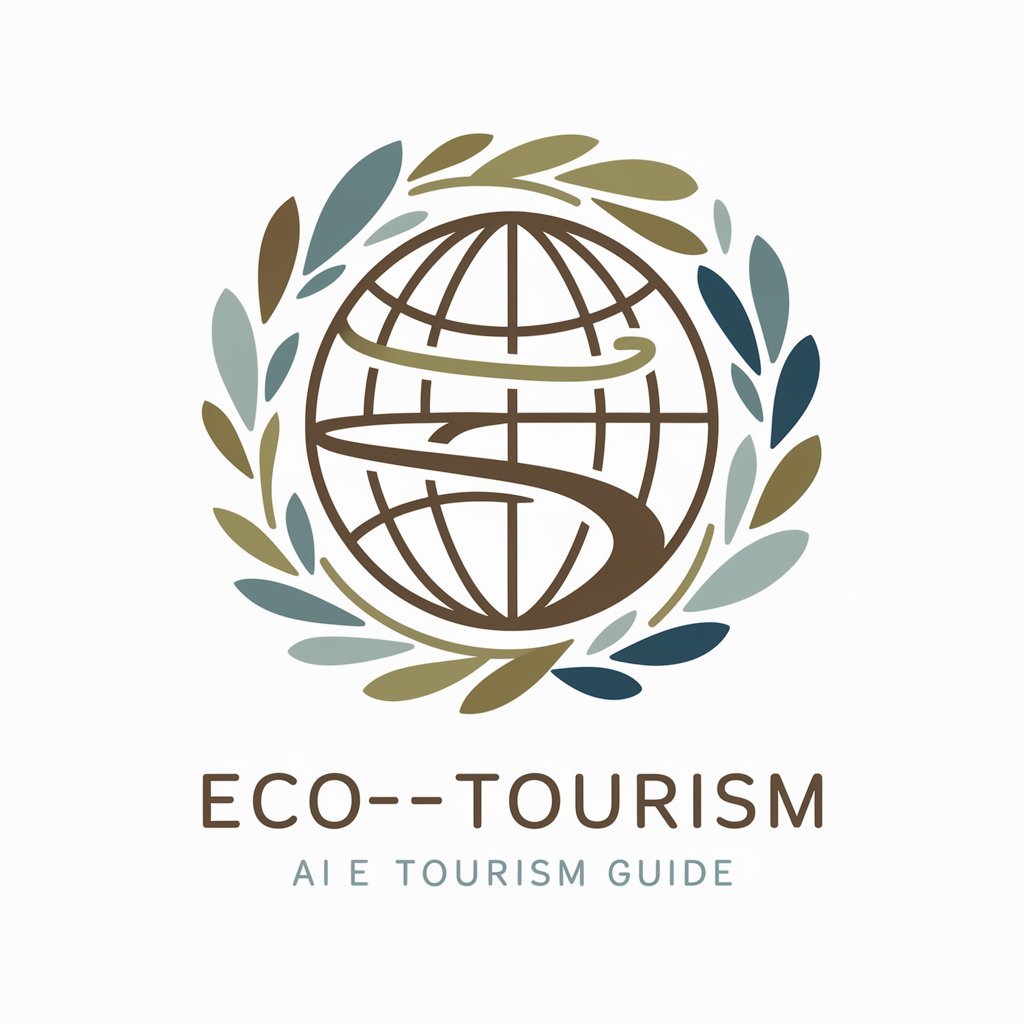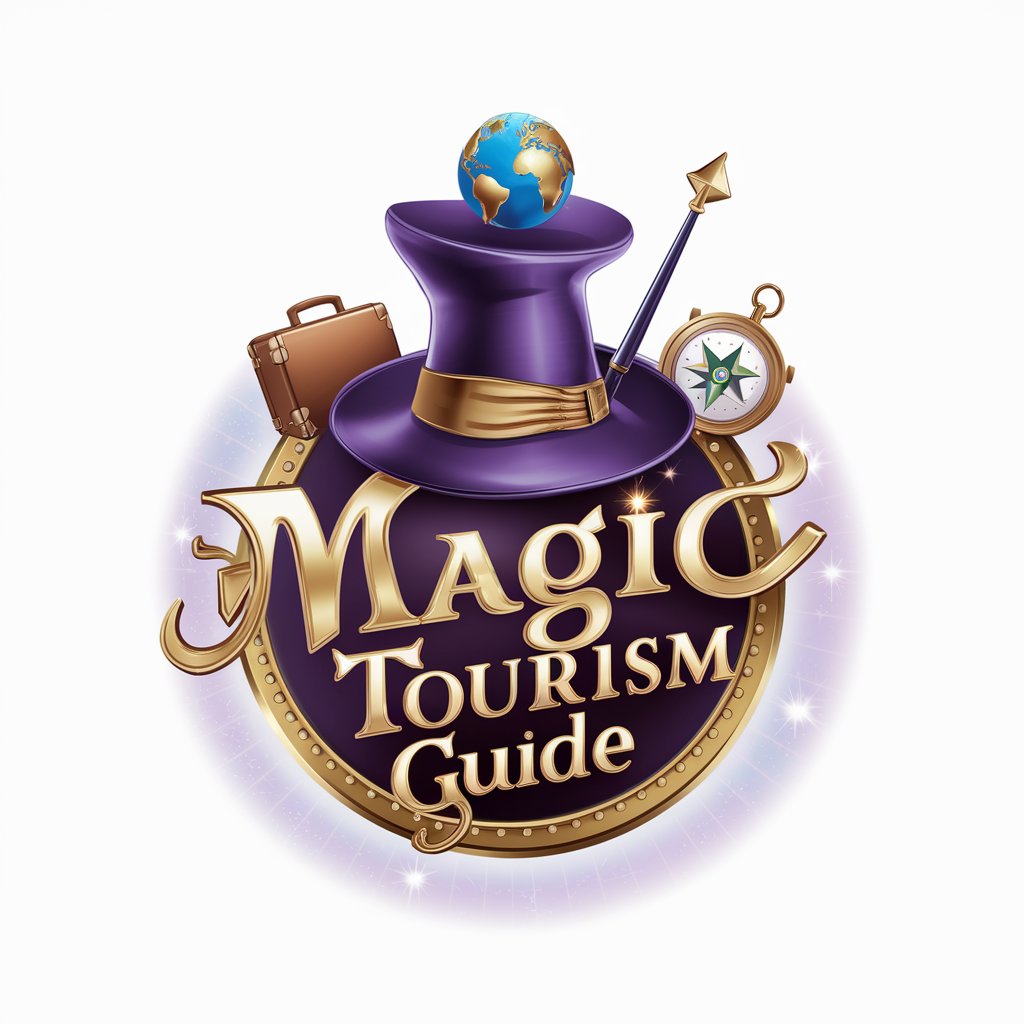Eco-Tourism Guide - Eco-Friendly Travel Aid

Welcome! How can I help you plan a sustainable adventure today?
Navigate Nature Responsibly with AI
What eco-friendly activities are available in [destination]?
Can you recommend sustainable accommodations in [location]?
How can I reduce my carbon footprint while traveling to [place]?
Are there any local conservation efforts I can participate in during my trip to [destination]?
Get Embed Code
Introduction to Eco-Tourism Guide
Eco-Tourism Guide is an AI-driven platform dedicated to promoting sustainable travel practices. Created by [UNI](https://useuni.app), its primary purpose is to help travelers make environmentally friendly choices that support local communities and conserve natural resources. The guide offers insights into eco-friendly accommodations, transportation options, and local conservation efforts. An example scenario is assisting a user in planning a trip to Costa Rica, focusing on eco-lodges that utilize solar power and water conservation systems, recommending carbon-offset flights, and suggesting volunteer opportunities with sea turtle conservation programs. Powered by ChatGPT-4o。

Main Functions of Eco-Tourism Guide
Eco-Friendly Accommodation Recommendations
Example
Finding hotels that implement sustainable practices like waste reduction, renewable energy usage, and local sourcing.
Scenario
A traveler planning a vacation to the Maldives is provided options for resorts that have EarthCheck certification and participate in coral reef restoration projects.
Sustainable Transportation Options
Example
Providing information on the most sustainable means of transportation available, including electric car rentals, public transport, or bicycle tours.
Scenario
For a user visiting Amsterdam, the guide suggests renting electric bikes to explore the city and using the extensive network of trams and ferries that run on renewable energy.
Local Conservation Efforts
Example
Highlighting opportunities for travelers to engage with and contribute to environmental conservation activities during their visit.
Scenario
A family traveling to Kenya is connected with a wildlife conservancy where they can participate in guided safaris that fund anti-poaching initiatives and species preservation.
Ideal Users of Eco-Tourism Guide Services
Eco-Conscious Travelers
Individuals who prioritize sustainability and want their travel choices to reflect their commitment to environmental conservation. They benefit from tailored travel suggestions that align with their values.
Educational Groups
Schools, universities, and other educational institutions planning trips that incorporate learning about biodiversity, conservation, and sustainable practices. These users benefit from the structured activities and detailed environmental education offered.
Adventure and Nature Enthusiasts
Travelers interested in exploring natural landscapes and participating in outdoor activities like hiking, bird watching, and snorkeling in a manner that respects and preserves these environments.

Guidelines for Using Eco-Tourism Guide
Starting your journey
Visit yeschat.ai to explore Eco-Tourism Guide for free without any login requirement or the need for ChatGPT Plus.
Identify your interests
Determine your travel preferences such as destinations, types of activities, and environmental impact concerns to make the most out of the tailored eco-tourism advice.
Engage with the tool
Use the tool's capabilities to get suggestions on eco-friendly accommodations, transportation options, and activities that promote sustainable travel.
Utilize browsing features
Take advantage of the browsing feature for the latest information on local conservation efforts and eco-certified establishments around the world.
Review and reflect
Evaluate the environmental, cultural, and economic impact of your travel choices, and adjust your plans to align better with eco-tourism principles.
Try other advanced and practical GPTs
Magic Tourism Guide
Magically Transforming Tourism

Farmer's Crystal Ball
Empowering Farmers with AI-Driven Forecasts

Image Builder
Bringing Your Ideas to Life with AI

Financial Advisor GPT
Empower Your Finances with AI

NextGen Styler
AI-Powered Next.js Development Assistant

SQL Styler
AI-powered precise SQL reformatting

Literary Architect
Empowering Your Words with AI

Analojik Düşünme
Making Complex Concepts Clearer

WhiskyPeaty
Discover the Spirit of Scotland

Augury Bird Oracle
Divine your future with AI-powered Roman augury.

Star Augur
Unlock cosmic insights with AI

HPC Expert
Optimizing HPC, Powered by AI

Frequently Asked Questions about Eco-Tourism Guide
What is eco-tourism?
Eco-tourism involves responsible travel to natural areas that conserves the environment, respects local cultures, and promotes the well-being of local communities. It emphasizes minimal environmental impact and supports the conservation efforts of local areas.
How can Eco-Tourism Guide help me plan a sustainable trip?
The Eco-Tourism Guide assists users by providing recommendations on eco-friendly accommodations, transportation options, and activities. It emphasizes minimizing your carbon footprint and maximizing community and ecological benefits.
What are some popular eco-tourism activities recommended by the guide?
Popular activities include guided nature hikes, wildlife viewing with conservation experts, volunteering with local environmental projects, and visiting sustainable farms or renewable energy installations.
Can Eco-Tourism Guide help with international travel?
Yes, the guide offers information applicable to numerous global destinations. It can provide details about local conservation laws, eco-certified lodging, and sustainable practices specific to the region you plan to visit.
How does the guide ensure the information is up-to-date?
Eco-Tourism Guide utilizes a web browsing feature to gather real-time data on eco-friendly practices, new environmental regulations, and up-to-date reviews of services and locations from an eco-perspective.
